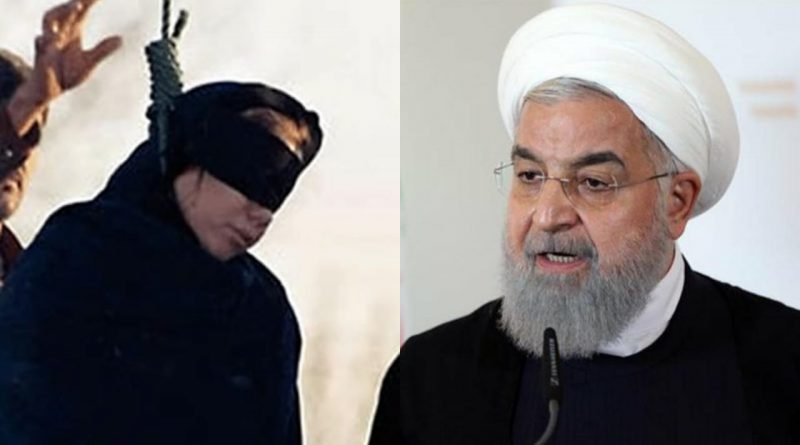Iran Regime Hangs 2 Women, and 93 Women Hanged Under Rouhani
by Hamideh Tati
Two women were hanged at dawn on Tuesday, July 23, 2019 in the Central Prison of Urmia, north-west Iran.
They were identified as Arasteh Ranjbar and Nazdar Vatankhah and had already spent 15 years in prison. They were accused of murder and complicity in murder, respectively.
According to an informed source, the two women had previously been given one month to attract the agreement of the victim’s parents; but they had not managed to do so, and their death penalties were carried out.
They were transferred to solitary cells Monday morning, July 22, to be prepared before being sent to the gallows, according to the Women’s Committee of the National Council of Resistance of Iran (NCRI).
With these latest executions, the number of women executed during six years of Hassan Rouhani’s presidency has reached 93. Four of them were executed in the past 8 days alone, indicating heightened suppression and targeting of women in Iran.
Maliheh Salehian from Miandoab was hanged on July 16, 2019, on the charge of murder in the Central Prison of Mahabad, in western Iran.
On July 17, 2019, another female prisoner, Zahra Safari Moghadam, 43, was hanged in the Prison of Nowshahr, in northern Iran.
Some 3,700 persons have been executed in Iran in the past six years under Rouhani. The Iranian regime is the world’s record holder for executions per capita. It carries out the death penalty as a tool to maintain its grab on power and silence a disgruntled population, the majority of whom live under the poverty line, while unemployment is rampant in the country and there is no freedom of speech.
Rule 61 of the United Nations Rules for the Treatment of Women Prisoners and Non-Custodial Measures for Women Offenders (the Bangkok Rules) reads, “When sentencing women offenders, courts shall have the power to consider mitigating factors such as lack of criminal history and relative non-severity and nature of the criminal conduct, in the light of women’s caretaking responsibilities and typical backgrounds.”
The Women’s Committee of the National Council of Resistance of Iran has condemned the execution of the two women by the mullahs’ regime since they are victims of misogynist laws and policies of the clerical regime and their destruction of the economy. The NCRI Women’s Committee urged the international organizations defending human rights and women’s rights to take action to stop the death penalty in Iran.
Article taken without a single change from NCRIran, however Feature Image is changed.



